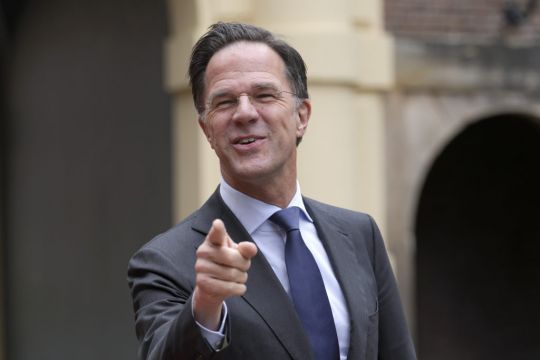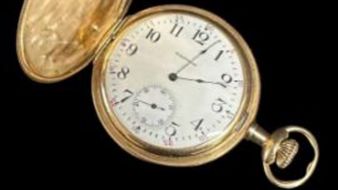Mark Rutte has become the longest-serving Dutch prime minister.
The leader, known by some as “Teflon Mark” because scandals do not stick to him, is showing no sign of slowing despite unrest gripping his nation and dragging down his party’s popularity.
Mr Rutte has been in charge for 4,311 days, or almost 12 years, since he first became leader in October 2010.
He said last month: “It’s the greatest job in the world, an unbelievable honour. I must say that there are now a large number of puzzles on my desk, but these things happen.”
Foremost of those puzzles is the government’s goal of slashing nitrogen pollution that has sparked angry protests by farmers who have caused traffic chaos in recent weeks by blocking roads and highways with tractors, dumping waste including manure and asbestos on roads and torching hay bales.
Mr Rutte, 55, leader of the centre-right People’s Party for Freedom and Democracy, or VVD, and head of a four-party ruling coalition, said he had no plans to celebrate becoming the longest-serving prime minister, which he called “a footnote”, and said he would not be in the country on the day.

While his party has been declining in recent polls, it remains the largest in the splintered Dutch political landscape.
That fragmentation helped Mr Rutte rise to power and is part of the reason he has remained in office for so long – he is now leading his fourth coalition government – according to political scientist Andre Krouwel of the Vrije Universiteit Amsterdam.
He said Mr Rutte won a power struggle within his own party at a time when traditional forces in Dutch politics – the Christian Democrats and Social Democrats – were in decline, and they have stayed that way.
“Basically he became prime minister by default because of the failure of others not because of his own achievements – just because the other ones collapsed more than the VVD did,” Mr Krouwel added.
That has helped Mr Rutte retain Dutch politics’ top job despite damaging crises over the dozen years he has been in office, particularly a scandal involving thousands of young families being plunged into debt and despair after being wrongfully accused of child benefit fraud.

Mr Rutte’s third coalition resigned because of the scandal. But he bounced back to lead the VVD to victory in a general election weeks later in March 2021.
He is seen in some quarters as too slick and has been accused in parliament of lying to legislators, but at the same time he is seen as an efficient leader who can make things happen, Mr Krouwel said.
“These two elements … make him, I think, a difficult player to beat,” he said.
Now he has eclipsed the previous longevity record of 4,310 days in office set by Ruud Lubbers, a Christian Democrat who led the Netherlands from November 4 1982 until August 22 1994.
Mr Rutte is the second longest-serving elected leader in the 27-nation European Union, trailing only Hungary’s Viktor Orban.
He has co-opted parties from across the political spectrum in his four coalitions that range from a minority coalition that was propped up by support from anti-Islam legislator Geert Wilders that took office October 14 2010, to his current four-party administration.
As one of the EU’s longest-serving leaders, Mr Rutte is seen as a behind-the-scenes mediator at leaders’ summits in Brussels, but has also had a more tense relationship with leaders in southern and eastern Europe who see him as figurehead of a group of “frugal” nations that insist on tight budgetary rules.
Mr Rutte has faced plenty of crises during his time in charge, ranging from the 2014 downing of Malaysia Airlines flight MH17 over eastern Ukraine that killed all 298 people on board – many of them Dutch nationals – to the Covid-19 pandemic.
And he is not ready to stop just yet. He said: “For me, the decisive factor is: Do I have the ideas, the energy? Is my mouth watering on Friday morning when the Cabinet meeting starts to begin solving problems? As long as I have that, I would like to continue.”







